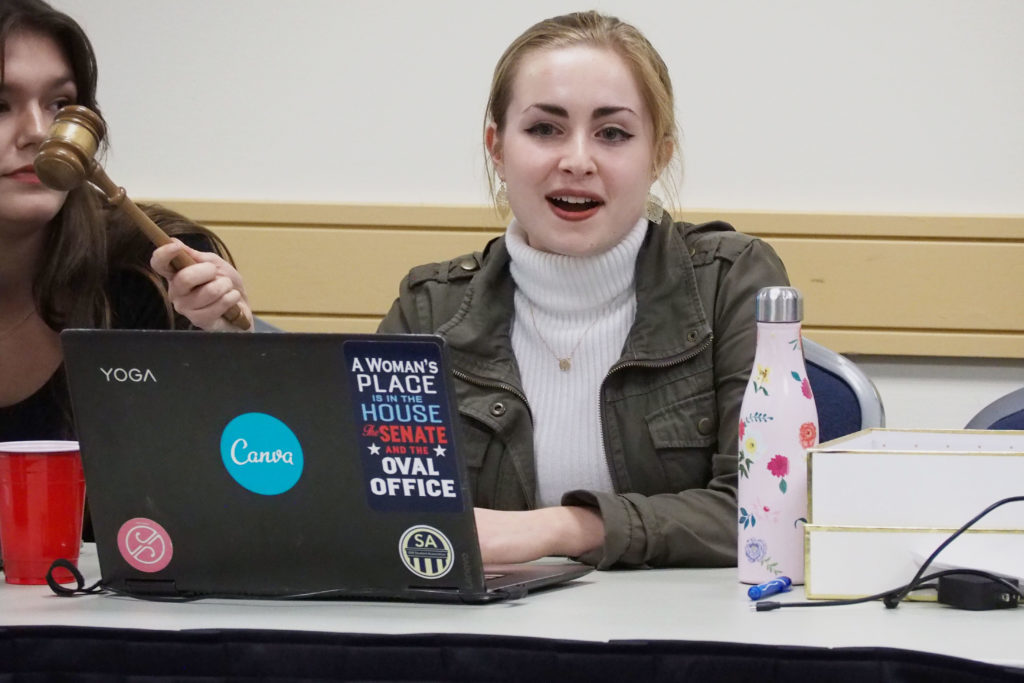The Student Association Senate unanimously passed legislation Monday clarifying how the Student Organization Resource Center operates.
The SA expanded the center, which opened in 2016 to supply student groups with essential items like tape and scissors, last month to include durable goods like coffee makers and cash boxes that groups can rent out for free. SA leaders said the Student Organization Resource Center Clarification Act solidifies rules that organizations have to follow when borrowing items, because the resource center previously operated without codified regulations.
“Essentially, these are the rules that we have been operating off of for the last who knows how many years, and we’ve just never put them into words in our governing documents,” SA Executive Vice President Amy Martin said. “That’s all we’re doing.”
Organizations that return damaged items will pay a fee, and groups that return items in unusable condition will pay the full price of each item, according to the act. The vice president for financial affairs and the SA president will determine fees for late or damaged items at the start of each academic year, according to the act.
Student organizations are required to return items rented from the resource center within three days, according to the act. The SA will charge groups a late fee for not returning an item to the SA within seven days, and groups that don’t return items within two weeks must pay the full price of the item, the act states.
Nicole Cennamo, the senate’s chief of staff who endorsed the bill, said the consequences for groups that return items after the third day but before the seventh day of renting will depend on if the group communicates about the delay and how frequently the group returns items late. If groups return an item after the seventh day, but before the fourteenth, the group will still be charged a late fee and face a greater chance of losing access to the center, Cennamo said.
She added that the center will send warning emails before revoking an organization’s access to resources.
“If they communicate it to us in advance and it only happens once, there won’t be any consequences,” she said. “However, if it continues to happen on a regular basis, the organization may lose it’s privilege to use the SORC.”
The SA will only provide free printing to registered student groups, according to the act. A group must submit printing requests for more than a thousand pages at least a week in advance, but all other requests must be submitted at least two days before an organization plans to pick up copies, the act states.
Student groups are allotted 500 free pages per calendar week, according to the act. Organizations are required to provide paper for any extra pages they request, or the SA will charge groups for additional pages based on Colonial Printing prices, the act states.
The SA Senate selected three student leaders to serve on the Diversity and Inclusion Assembly and voted to convert one graduate school seat and two undergraduate seats to at-large positions. SA members approved five undergraduate senators, including one Hatchet reporter, and three graduate students to serve on the senate.
The SA also approved Zachary Nosanchuk, a Hatchet opinions writer, to serve as the vice president for undergraduate policy. Nosanchuk stepped down from his role as the director of interfaith engagement to assume the vice president role.
Dylan Sapienza contributed reporting.








